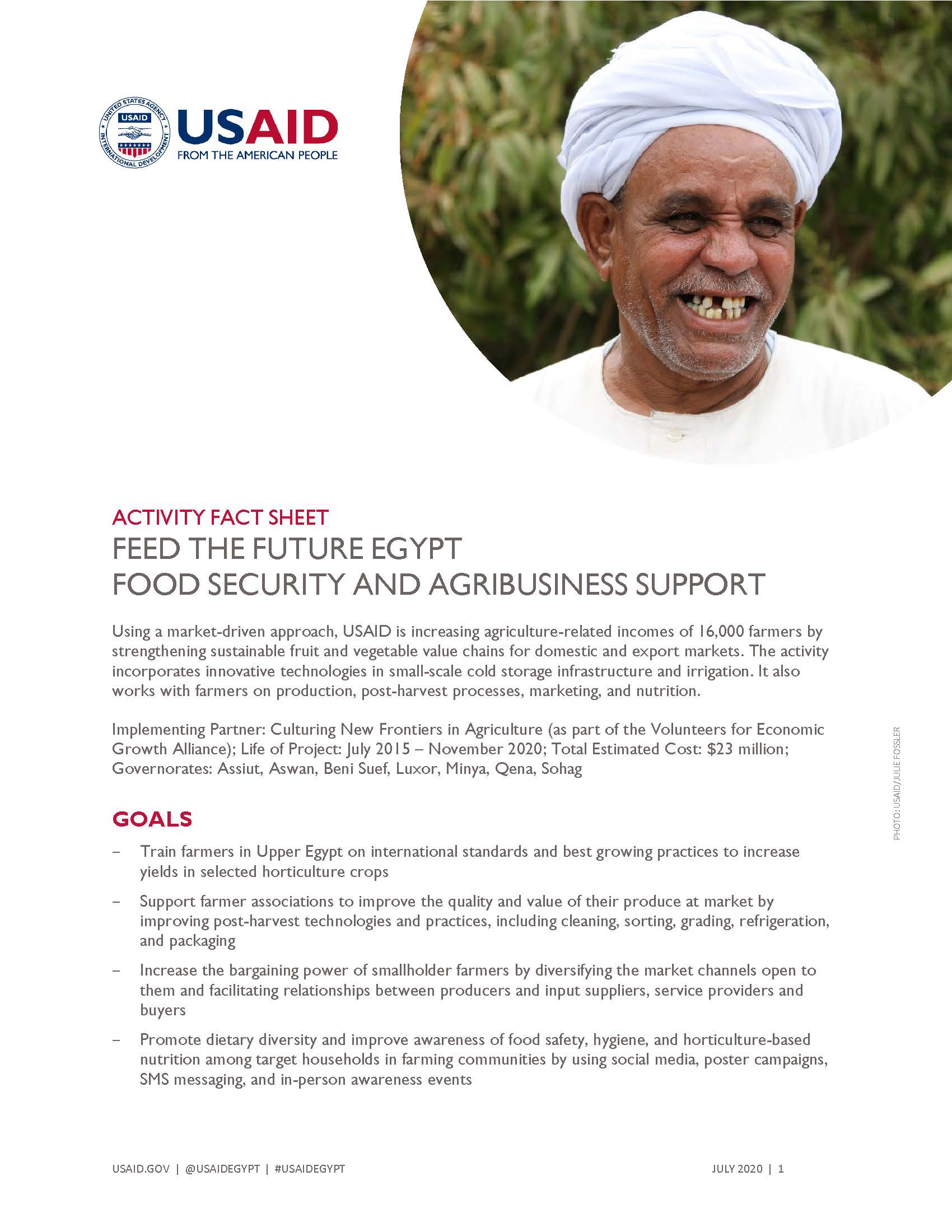Home » Where We Work » Middle East » Egypt » Feed The Future Egypt Food Security and Agribusiness Support
Speeches Shim

A mango grower in Aswan, Egypt stands in his export-quality orchard.
USAID/Julie Fossler
Using a market-driven approach, USAID is increasing agriculture-related incomes of 16,000 farmers by strengthening sustainable fruit and vegetable value chains for domestic and export markets. The activity incorporates innovative technologies in small-scale cold storage infrastructure and irrigation. It also works with farmers on production, post-harvest processes, marketing, and nutrition.
Implementing Partner: Culturing New Frontiers in Agriculture (as part of the Volunteers for Economic Growth Alliance); Life of Project: July 2015 – November 2020; Total Estimated Cost: $23 million; Governorates: Assiut, Aswan, Beni Suef, Luxor, Minya, Qena, Sohag
GOALS
- Train farmers in Upper Egypt on international standards and best growing practices to increase yields in selected horticulture crops
- Support farmer associations to improve the quality and value of their produce at market by improving post-harvest technologies and practices, including cleaning, sorting, grading, refrigeration, and packaging
- Increase the bargaining power of smallholder farmers by diversifying the market channels open to them and facilitating relationships between producers and input suppliers, service providers and buyers
- Promote dietary diversity and improve awareness of food safety, hygiene, and horticulture-based nutrition among target households in farming communities by using social media, poster campaigns, SMS messaging, and in-person awareness events
- Provide in-kind grants to support production and marketing for horticulture export businesses, including farmers’ associations, to strengthen market infrastructure (e.g. collection centers, pack-houses, cold storage, drip irrigation) and close existing gaps in the value chains
RESULTS
- Over $28 million in annual sales from smallholder farms receiving project assistance
- More than $2.5 million in private sector investment leveraged by the project
- Facilitated negotiation and completion of new sales contracts worth more than $6.3 million, including more than 1,500 smallholder farmers
- Delivered training and technical assistance for more than 16,000 farmers across seven governorates to produce higher quality value crops and secure higher value of sales
- Provided training and advisory to more than 5,800 women and their families on nutrition, dietary diversity, and food safety
- Piloted a new business model for Farm Service Centers to offer access to finance, training, technical advisory, equipment leasing, and inputs from a single source
- Created new market relationships between smallholder farmers and a range of large buyers including: Carrefour, Spice Kingdom, Nevix, Jana, Lotus, Agrofood, and others



Comment
Make a general inquiry or suggest an improvement.